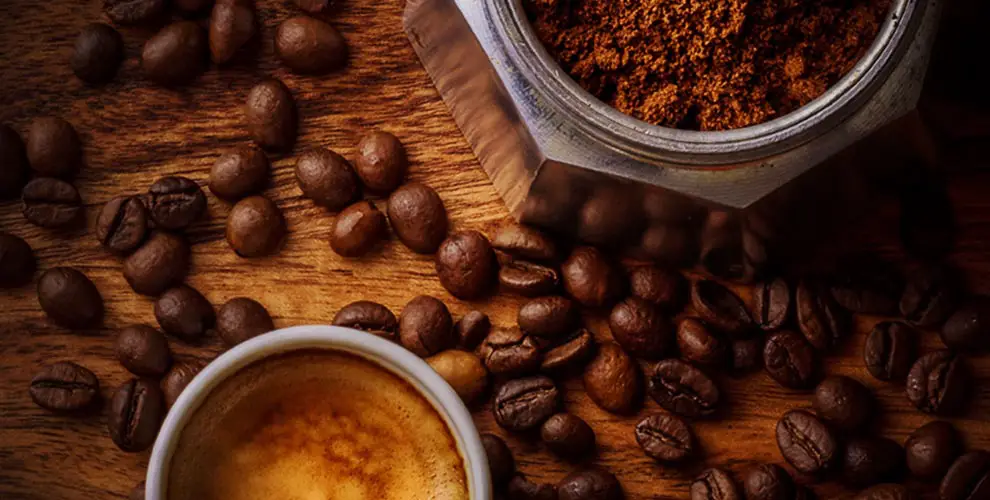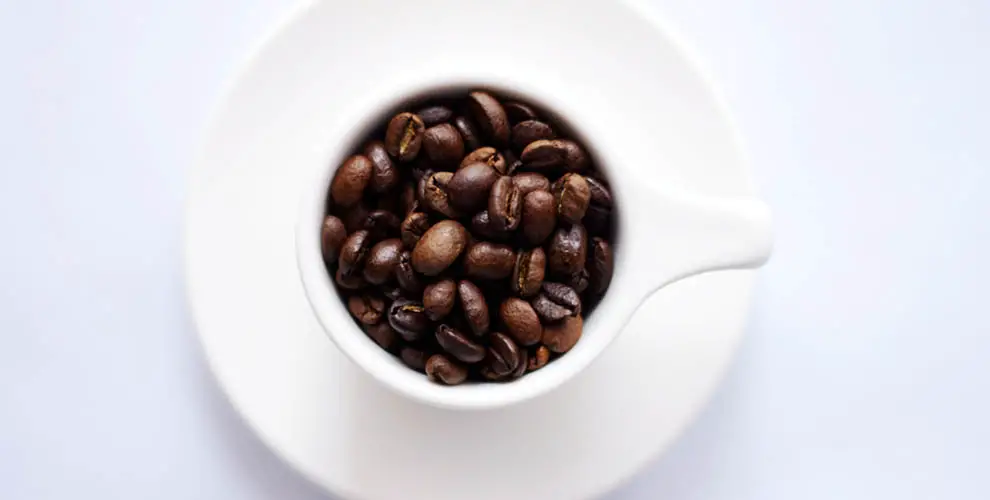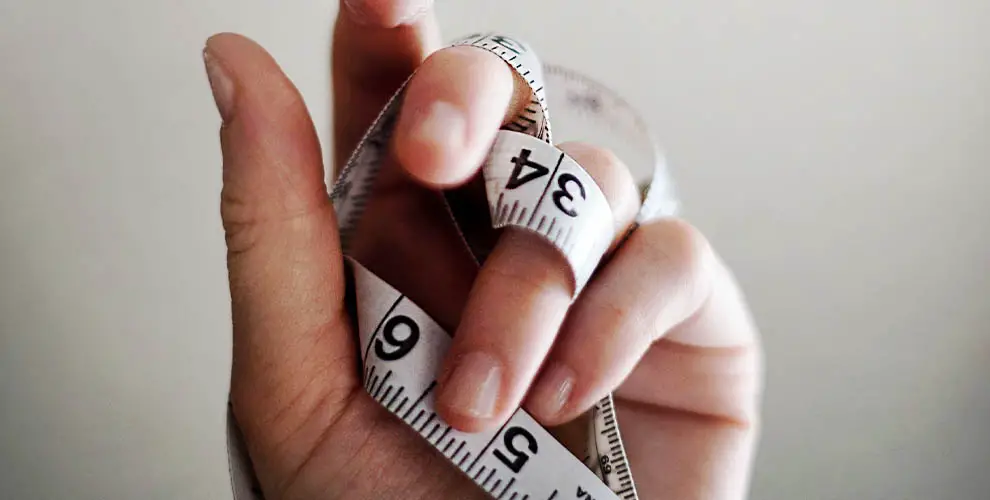If you’re a coffee lover, you’re likely familiar with the comforting aroma and rich flavors of Arabica coffee. But have you ever wondered about the caffeine content in your favorite cup of joe? In this article, we’ll explore the world of Arabica coffee, its history, caffeine levels, and how it compares to other coffee species. We’ll also delve into the health implications of caffeine consumption, the benefits of moderate intake, and potential risks and side effects. Additionally, we’ll provide some tips on controlling your caffeine intake and choosing low-caffeine coffee varieties. So, let’s dive in and explore the fascinating world of Arabica coffee and caffeine.

Arabica Coffee Overview
Arabica coffee, scientifically known as Coffea arabica, is one of the two main species of coffee beans that dominate the coffee industry, the other being Robusta (Coffea canephora). Arabica is celebrated for its superior taste, mild acidity, and complex flavor profiles, making it the preferred choice for coffee connoisseurs around the world. It is often associated with specialty and gourmet coffee.
History and Origins
Arabica coffee has a rich history that dates back centuries. Its origins can be traced to the highlands of Ethiopia, where it is believed to have been first cultivated. Over time, Arabica coffee spread across the Arabian Peninsula, hence its name, and eventually made its way to various regions worldwide. The unique combination of factors like altitude, climate, and soil quality greatly influences the flavor and aroma of Arabica coffee.
Cultivation and Production
Arabica coffee is known for being more delicate and susceptible to pests and diseases compared to its counterpart, Robusta. It thrives in higher altitudes, typically between 2,000 and 6,000 feet, with optimal temperatures and rainfall. The cultivation of Arabica coffee is a labor-intensive process that often involves hand-picking ripe coffee cherries to ensure the highest quality beans.
Now, let’s move on to the exciting topic of caffeine content in Arabica coffee.
Caffeine Content in Arabica Coffee
One of the key factors that coffee enthusiasts often inquire about is the caffeine content in Arabica coffee. Arabica beans contain less caffeine compared to their Robusta counterparts, typically ranging from 1.2% to 1.5% caffeine content. This lower caffeine level contributes to Arabica’s smoother and milder flavor, making it a preferred choice for those who enjoy a less bitter and more nuanced coffee experience.
Factors Affecting Caffeine Levels
The caffeine content in Arabica coffee can vary due to several factors, including:
1. Altitude:
Coffee beans grown at higher altitudes tend to have lower caffeine content. This is believed to be a natural defense mechanism for the coffee plant against pests.
2. Roast Level:
Contrary to popular belief, darker roasts often have slightly less caffeine than lighter roasts. The roasting process can reduce caffeine content while enhancing the overall flavor.
3. Bean Variety:
Within the Arabica category, different varieties may have slight variations in caffeine content. For instance, Typica and Bourbon Arabica beans are known for their lower caffeine levels.
Comparing Arabica to Other Coffee Species
To understand the significance of Arabica’s caffeine content, it’s essential to compare it to Robusta coffee. Robusta beans, with a caffeine content ranging from 2.2% to 2.7%, contain significantly more caffeine. While this makes Robusta coffee more bitter, it also contributes to its distinctive bold and earthy flavor.
Consumers often choose between Arabica and Robusta based on their caffeine preferences, flavor profiles, and desired coffee experience. Arabica tends to be favored for its delicate taste, while Robusta is known for its strong and robust flavor.
In the next sections of this article, we will explore the health implications of caffeine consumption, the benefits of moderate intake, and potential risks and side effects. We’ll also provide tips for controlling your caffeine intake and choosing low-caffeine coffee varieties.
Stay tuned for a deeper dive into the world of caffeine and coffee.
Health Implications of Caffeine Consumption

Caffeine is a natural stimulant found in coffee and various other beverages and products. While it can offer several benefits, it’s essential to be mindful of its potential effects on your health. Here are some key points to consider:
1. Enhanced Alertness:
Caffeine is renowned for its ability to increase alertness and reduce the perception of fatigue. It’s the reason many people turn to their morning coffee to kickstart their day.
2. Improved Concentration:
Caffeine can enhance cognitive function, making it easier to focus and stay attentive to tasks.
3. Mood Enhancement:
Many individuals report experiencing improved mood and a sense of well-being after consuming caffeine.
4. Physical Performance:
Caffeine has been shown to boost physical performance, making it a popular choice among athletes.
Benefits of Moderate Consumption
Moderate caffeine consumption, including enjoying your favorite cup of Arabica coffee, can offer numerous advantages. These include:
1. Antioxidants:
Coffee is a rich source of antioxidants, which can help combat free radicals and reduce the risk of certain diseases.
2. Lower Risk of Some Diseases:
Some studies suggest that moderate coffee consumption is associated with a reduced risk of conditions like Parkinson’s disease and type 2 diabetes.
3. Social Enjoyment:
Coffee often plays a central role in social interactions, providing a platform for connection and conversation.
Potential Risks and Side Effects
While moderate coffee consumption can be beneficial, excessive caffeine intake can lead to adverse effects, such as:
1. Sleep Disturbances:
Consuming caffeine late in the day can interfere with your ability to fall asleep and stay asleep.
2. Increased Heart Rate:
High doses of caffeine can lead to increased heart rate and palpitations.
3. Digestive Issues:
Some individuals may experience stomach discomfort or acid reflux as a result of coffee consumption.
4. Dependency:
Regular and excessive caffeine intake can lead to dependency, with withdrawal symptoms like headaches when caffeine is not consumed.
In the final section of this article, we’ll provide some tips for controlling your caffeine intake and choosing low-caffeine coffee varieties. We’ll also discuss the impact of brewing techniques on caffeine levels in your cup of coffee.
Stay tuned for the conclusion and practical recommendations for coffee enthusiasts.
Tips for Controlling Caffeine Intake

If you’re looking to manage your caffeine consumption, there are several strategies you can consider:
1. Choose Decaffeinated Coffee:
Decaffeinated coffee, often labeled as “decaf,” contains significantly less caffeine while retaining the flavor of regular coffee. It’s an excellent choice for those who want to enjoy the taste of coffee without the stimulating effects of caffeine.
2. Opt for Low-Caffeine Varieties:
Some coffee bean varieties naturally have lower caffeine content. If you prefer Arabica coffee, you’re already on the right track, as Arabica beans generally have less caffeine than Robusta.
3. Be Mindful of Serving Size:
The larger the serving, the more caffeine you consume. Consider smaller cup sizes or diluting your coffee with water if you’re sensitive to caffeine.
4. Pay Attention to Brewing Time:
The longer coffee is brewed, the more caffeine is extracted. Consider adjusting your brewing time to control caffeine levels.
Brewing Techniques Impacting Caffeine Levels
Your brewing method can significantly affect the caffeine content of your coffee. Here are some key considerations:
1. Espresso vs. Drip Coffee:
Espresso typically has a higher concentration of caffeine per ounce compared to drip coffee. However, most people consume smaller amounts of espresso.
2. Cold Brew:
Cold brew coffee tends to have a milder caffeine kick compared to hot-brewed coffee. The extended steeping process can result in a smoother and less acidic brew.
3. French Press vs. Paper Filters:
Brewing methods like the French press allow for more of the coffee’s natural oils and solids to be retained, which can result in a stronger flavor but not necessarily higher caffeine content.
In conclusion, Arabica coffee, with its milder caffeine content, offers a delightful coffee experience that many coffee aficionados appreciate. However, it’s essential to be mindful of your caffeine intake, as excessive consumption can lead to unwanted side effects.
By choosing low-caffeine varieties, moderating your serving sizes, and adjusting your brewing techniques, you can personalize your coffee experience to suit your preferences and needs.
We hope this article has shed light on the caffeine content of Arabica coffee and provided you with valuable insights into making the most of your coffee enjoyment.
Does Arabic Coffee Have High Caffeine?

When you think of coffee, you might envision a steaming cup of your favorite brew, offering a comforting aroma and a gentle nudge to wake up. While the world of coffee offers an extensive variety of flavors, blends, and preparation methods, the caffeine content in your cup can vary significantly. If you’ve ever wondered whether Arabic coffee, specifically Arabica coffee, is known for high caffeine levels, you’re in the right place. Let’s explore the caffeine content in Arabica coffee and some factors that influence it.
Understanding Arabica Coffee
Arabica coffee, scientifically known as Coffea arabica, is one of the most popular coffee species globally, prized for its mild and nuanced flavors. Arabica beans are typically grown in higher elevations, and they are favored for their delicate, less bitter taste. But how does the caffeine content of Arabica coffee compare to other coffee types, particularly the robust Robusta coffee beans known for their higher caffeine content?
Comparing Arabica and Robusta
To understand the caffeine content in Arabica coffee, it’s important to compare it to Robusta coffee, the other major coffee species:
Robusta Coffee
- Robusta coffee beans (Coffea canephora) are known for their higher caffeine content, ranging from approximately 2.2% to 2.7%. This increased caffeine level contributes to the robust and somewhat bitter flavor profile of Robusta coffee.
- Robusta beans are often used in espresso blends, providing a strong and bold taste that can cut through milk and other flavors.
Arabica Coffee
- Arabica coffee, in contrast, contains less caffeine. The caffeine content in Arabica beans usually ranges from 1.2% to 1.5%. This lower caffeine level results in a smoother, more mild, and less bitter flavor.
- Arabica beans are often the choice for specialty coffee and gourmet brews due to their complex and nuanced taste.
Factors Influencing Caffeine Levels
The caffeine content in your coffee is not solely determined by the coffee species. Several other factors can influence how much caffeine ends up in your cup:
Altitude
Coffee grown at higher altitudes tends to have lower caffeine content. This is believed to be a natural defense mechanism for the coffee plant against pests.
Roast Level
Surprisingly, darker roasts, despite their strong flavor, tend to have slightly less caffeine than lighter roasts. The roasting process can reduce caffeine content while enhancing the overall flavor.
Bean Variety
Even within the Arabica category, different bean varieties may exhibit slight variations in caffeine content. For example, Typica and Bourbon Arabica beans are known for their lower caffeine levels.
Wrapping It Up
So, does Arabic coffee have high caffeine? In comparison to Robusta coffee, Arabica coffee contains less caffeine, offering a milder and more delicate flavor. While the caffeine content can vary due to factors like altitude, roast level, and bean variety, Arabica remains a popular choice for those who savor a less bitter and more nuanced coffee experience.
Ultimately, the caffeine content in your coffee is just one element of the rich and diverse world of coffee. Your choice of coffee should align with your flavor preferences, rather than solely your caffeine requirements. Whether you opt for Arabica or Robusta, remember that coffee can be a delightful and comforting part of your day.
Is Arabian Coffee Strong?

Coffee lovers often find themselves exploring a world of diverse flavors and brewing methods, with each cup offering a unique experience. One of the questions that frequently arises is whether Arabian coffee, or more specifically, the traditional coffee of the Arabian Peninsula, is known for its strength. In this article, we’ll dive into the world of Arabian coffee to discover just how strong it can be and what factors contribute to its potency.
Strength in Flavor
Arabian coffee is renowned for its strong flavor, but what exactly does “strong” mean in this context?
Intensity
- When we refer to Arabian coffee as strong, we’re talking about its intense and robust flavor. The finely ground coffee beans and the simmering process create a brew with a rich, full-bodied taste that can be quite bold.
Aromatics
- The addition of spices, primarily cardamom, enhances the aromatic profile of Arabian coffee. The combination of the coffee’s strong flavor and aromatic spices results in a unique and powerful sensory experience.
Caffeine Content
In addition to its bold flavor, another aspect that contributes to the strength of Arabian coffee is its caffeine content.
Arabica Beans
- Arabian coffee is typically brewed using Arabica beans, which contain less caffeine compared to Robusta beans. Arabica beans offer a milder caffeine kick, which can be perceived as less “strong” in terms of caffeine’s stimulating effects.
Preparation Method
- The traditional preparation method, which involves simmering the coffee, doesn’t necessarily extract more caffeine from the beans. It’s the combination of the robust flavor and aromatic spices that creates the perception of strength.
Cultural Significance
Arabian coffee isn’t just about the flavor and caffeine; it’s also deeply embedded in the culture and social traditions of the Arabian Peninsula. It’s often served in small, demitasse-style cups and is an integral part of welcoming guests and fostering hospitality.
So, is Arabian coffee strong? Yes, it is, but not necessarily in terms of caffeine content. Its strength lies in its bold, full-bodied flavor and aromatic profile, as well as its cultural significance.
Arabian coffee provides a different coffee experience compared to the espressos or Americanos you might be used to. Its potency is a testament to the rich history and traditions of the Middle East and North Africa.
Whether you’re a coffee enthusiast or simply curious about the world of coffee, Arabian coffee is a unique and intriguing option to explore. So, the next time you’re offered a cup of Arabian coffee, be prepared for a strong and flavorful journey through the coffee traditions of the Arabian Peninsula.
Does Arabic Coffee Have More Caffeine Than Espresso?

The world of coffee is diverse and complex, offering a wide range of flavors, brewing methods, and caffeine levels. Two popular coffee styles that often intrigue coffee enthusiasts are Arabian (Arabic) coffee and espresso. Both have their unique characteristics, but when it comes to caffeine, how do they compare? In this article, we’ll explore the caffeine content in Arabic coffee and espresso to determine which one typically has more caffeine.
Understanding Arabic Coffee
Arabic coffee, also known as Arabian coffee, is deeply rooted in Middle Eastern traditions. It’s distinct from the espresso-based coffee commonly enjoyed in Western countries. The brewing process and ingredients used in Arabic coffee play a significant role in determining its caffeine content.
The Brewing Process
- Arabic coffee is traditionally made by grinding lightly roasted Arabica coffee beans into a fine powder.
- The coffee is simmered with water, often infused with spices like cardamom, until it produces a bold and aromatic brew.
Caffeine in Arabic Coffee
Arabian coffee is known for its rich flavor, but does this mean it also has higher caffeine content compared to espresso?
Arabica Beans
- Arabian coffee is typically brewed using Arabica beans. Arabica beans contain less caffeine than the Robusta beans often used for espresso.
- The caffeine content in Arabica beans generally ranges from about 1.2% to 1.5%, which is lower than that of Robusta beans.
Preparation Method
- Despite the robust flavor of Arabic coffee, the preparation method doesn’t necessarily extract more caffeine from the beans. The spices and the prolonged simmering process create the perception of strength and intensity in flavor.
Espresso: A Quick Comparison
To determine whether Arabic coffee has more caffeine than espresso, let’s briefly look at espresso:
Espresso Brewing
- Espresso is made by forcing hot water through finely-ground coffee at high pressure.
- Espresso typically uses a more concentrated coffee-to-water ratio and has a shorter extraction time than other brewing methods.
Caffeine in Espresso
- Espresso is known for its strong and concentrated flavor, which can give the impression of high caffeine content.
- Espresso made from Robusta beans can indeed contain more caffeine than Arabic coffee, with caffeine levels in espresso ranging from 1.2% to 2.7%.
Which Has More Caffeine?
So, does Arabic coffee have more caffeine than espresso? The answer is usually no. Espresso, especially if made from Robusta beans, typically has higher caffeine content. Arabic coffee’s bold flavor often comes from the spices and the unique brewing process, not necessarily from higher caffeine levels.
The caffeine content in your cup of coffee can vary depending on factors like the type of beans, brewing method, and the coffee-to-water ratio. Ultimately, the choice between Arabic coffee and espresso should be based on your flavor preferences and the overall coffee experience you’re seeking.
Arabic coffee provides a distinctive and culturally rich experience, while espresso is known for its intense and concentrated coffee shot. Whichever you choose, it’s all about enjoying the journey through the diverse world of coffee.
Is Arabic Coffee Stronger Than American Coffee?

Coffee is a beloved and diverse beverage enjoyed worldwide, and the strength of your brew can vary significantly depending on the type of coffee, brewing method, and personal preferences. In this article, we’ll explore the strength of Arabic coffee and American coffee, comparing the two to determine which one is stronger in terms of flavor and caffeine content.
Understanding Arabic Coffee
Arabic coffee, also known as Arabian coffee, is deeply ingrained in Middle Eastern traditions and hospitality. It is prepared using a unique method that contributes to its distinctive flavor.
The Brewing Process
- Arabic coffee is typically made from lightly roasted Arabica coffee beans, which are finely ground to a powder-like consistency.
- The ground coffee is simmered with water, often infused with spices like cardamom, creating a bold and aromatic brew.
Strength in Flavor
The strength of coffee can refer to the intensity of its flavor. When comparing Arabic coffee to American coffee, several aspects come into play:
Arabic Coffee Flavor
- Arabic coffee is known for its strong flavor. The combination of finely ground coffee beans, simmering, and the addition of spices like cardamom creates a robust and aromatic profile.
- The bold flavor of Arabic coffee is one of its defining characteristics, contributing to its perception as a strong coffee.
Understanding American Coffee
American coffee, often referred to simply as “coffee” in the United States, represents a more generalized and milder approach to coffee.
The Brewing Process
- American coffee is typically made using a drip or pour-over brewing method. Coarsely ground coffee beans are steeped in hot water, resulting in a more diluted and mild coffee compared to other brewing techniques.
American Coffee Flavor
- American coffee is generally milder in flavor, with a less intense and less aromatic profile compared to Arabic coffee. It is often described as smooth and easy-drinking.
Caffeine Content
Strength in coffee can also refer to its caffeine content, which can affect your perception of wakefulness and alertness. Let’s explore the caffeine aspect of Arabic and American coffee:
Arabic Coffee Caffeine
- Arabic coffee is usually brewed with Arabica beans, which contain less caffeine compared to Robusta beans. The caffeine content in Arabica beans ranges from about 1.2% to 1.5%.
- While Arabic coffee may have a strong flavor, it’s not necessarily strong in terms of caffeine content.
American Coffee Caffeine
American coffee’s caffeine content varies depending on factors like bean type, brewing method, and serving size. However, in most cases, it contains more caffeine than Arabic coffee due to its use of a higher coffee-to-water ratio.
Which Is Stronger?
So, is Arabic coffee stronger than American coffee? It depends on how you define “strong.”
- In terms of flavor intensity, Arabic coffee is often considered stronger due to its bold, aromatic, and sometimes spiced profile.
- In terms of caffeine content, American coffee typically contains more caffeine due to the brewing process and choice of beans.
Ultimately, the choice between Arabic and American coffee comes down to personal preference. If you prefer a robust and aromatic coffee, Arabic coffee may be your choice. If you’re looking for a milder, caffeine-rich brew, American coffee is the way to go.
Whether you enjoy the bold strength of Arabic coffee or the milder profile of American coffee, both have their unique qualities and can be savored in their own right. Your choice should align with your flavor preferences and the coffee experience you desire.
Does Arabic Coffee Keep You Awake?

Arabic coffee, also known as Arabian coffee, holds a special place in Middle Eastern traditions and hospitality. The rich and flavorful brew is enjoyed in social settings and gatherings, often symbolizing warm welcomes and community. But when it comes to its caffeine content, does Arabic coffee have the potential to keep you awake, similar to the way your morning espresso might? In this article, we’ll explore the caffeine content in Arabic coffee and its impact on your wakefulness.
Arabic coffee is unique in its brewing process and flavor profile. To answer the question of whether it can keep you awake, it’s crucial to understand its components and preparation.
Caffeine in Arabic Coffee
Caffeine is the primary stimulant found in coffee that can enhance alertness and reduce the perception of fatigue. However, the caffeine content in Arabic coffee differs from what you might find in other coffee types, such as espresso.
Arabica Beans
- Arabic coffee is generally brewed using Arabica beans, which contain less caffeine compared to the Robusta beans used in espresso.
- The caffeine content in Arabica beans typically ranges from about 1.2% to 1.5%, making it milder in terms of caffeine concentration.
Flavor vs. Caffeine
- Arabic coffee is celebrated for its strong and bold flavor, thanks in part to the addition of cardamom and the extended simmering process. However, this doesn’t necessarily mean it contains more caffeine.
- The unique flavor profile may contribute to the perception of wakefulness, but the caffeine content is lower than what you’d find in an espresso shot.
Factors Influencing Wakefulness
While the caffeine content in Arabic coffee is milder, the experience of staying awake after consuming it can still be influenced by several factors:
Preparation Method
The traditional method of simmering Arabic coffee can create a concentrated and aromatic brew that some individuals find invigorating, contributing to wakefulness.
Serving Size
The size of the serving can play a role. A smaller cup of Arabic coffee might have less caffeine compared to a large cup, but the strong flavor and aroma can still provide a wakeful experience.
Individual Sensitivity
People have varying levels of sensitivity to caffeine. Some may find that even a cup of Arabic coffee with milder caffeine content can keep them awake, especially if they are not accustomed to caffeine.
So, does Arabic coffee keep you awake? The answer is yes, but perhaps not as intensively as a concentrated espresso shot. Arabic coffee can provide a sense of alertness and wakefulness due to its bold flavor and aromatic qualities, despite its lower caffeine content.
The decision to enjoy Arabic coffee should be based on your preference for its unique flavor and cultural significance, rather than solely for its caffeine effects. Whether you savor it for the taste or as part of a social tradition, Arabic coffee offers a rich and delightful experience, enriching moments shared with others.
Does Arabic Coffee Make You Lose Weight?

Coffee is a popular beverage worldwide, enjoyed for its rich flavor and the potential health benefits it offers. In recent years, various types of coffee have gained attention for their potential to aid in weight management. One such coffee is Arabic coffee. In this article, we’ll explore whether Arabic coffee can truly help you lose weight and what factors contribute to this claim.
The Basics of Arabic Coffee
Arabic coffee, also known as Arabian coffee, is a traditional Middle Eastern coffee with a unique flavor profile and cultural significance. To understand its potential impact on weight loss, it’s essential to delve into its components and brewing method.
Caffeine and Weight Loss
One reason coffee is often associated with weight management is its caffeine content, which is known to have several potential effects on the body.
Metabolic Rate
- Caffeine is a natural stimulant that can temporarily boost your metabolic rate. A higher metabolic rate can help your body burn more calories, potentially aiding in weight loss.
Appetite Suppression
- Caffeine may also have appetite-suppressing effects, reducing the feelings of hunger and promoting satiety. This can result in consuming fewer calories.
Energy and Physical Activity
- Caffeine can provide an energy boost, potentially leading to increased physical activity and calorie expenditure.
Arabic Coffee and Caffeine
Arabic coffee does contain caffeine, but the amount may vary depending on factors such as the type of coffee beans used and the brewing strength. Arabic coffee is typically brewed using Arabica beans, which contain less caffeine than Robusta beans. This lower caffeine content might lead to a milder metabolic boost and appetite suppression compared to stronger coffee types.
The Role of Spices
The addition of spices like cardamom in Arabic coffee can also play a role in weight management.
Digestive Aid
- Cardamom is believed to aid digestion and may reduce bloating and discomfort, potentially contributing to a sense of well-being and weight loss efforts.
Other Considerations
It’s important to note that while caffeine and certain spices in Arabic coffee may offer some weight management benefits, these effects are not a magic solution for shedding pounds. Several other factors play a more significant role in weight loss:
- Diet: Your overall diet and caloric intake play a central role in weight management. Consuming a balanced and calorie-controlled diet is key.
- Physical Activity: Regular physical activity is essential for burning calories and maintaining a healthy weight.
- Lifestyle: Your lifestyle, including sleep quality, stress levels, and hydration, can impact weight management.
So, does Arabic coffee make you lose weight? Arabic coffee, like other caffeinated beverages, may offer some potential benefits for weight management. However, these effects are typically modest and should be considered in the context of a balanced diet and a healthy lifestyle.
If you enjoy the flavor and cultural experience of Arabic coffee, feel free to include it in your daily routine, but don’t rely on it as the primary solution for weight loss. Incorporating it as part of a broader strategy that includes a well-balanced diet and regular physical activity is more likely to yield significant results in your weight management journey.
Remember that individual responses to caffeine and spices can vary, so it’s always a good idea to consult with a healthcare professional or a registered dietitian before making significant changes to your diet or lifestyle.
Does Arabic Coffee Raise Blood Pressure?

Arabic coffee, often referred to as Arabian coffee, is a traditional Middle Eastern beverage celebrated for its bold flavor and cultural significance. As with any caffeinated beverage, questions often arise about its potential effects on health, particularly concerning blood pressure. In this article, we’ll explore the relationship between Arabic coffee and blood pressure to provide a clearer understanding of its impact.
The Role of Caffeine
Caffeine is a natural stimulant found in coffee and many other beverages. It is known to have various effects on the body, including potential implications for blood pressure.
Caffeine’s Effects
- Caffeine can temporarily increase blood pressure by stimulating the release of certain hormones that narrow blood vessels.
- It can also have a mild diuretic effect, leading to increased urination, which may affect fluid balance in the body.
Caffeine in Arabic Coffee
Arabic coffee does contain caffeine, but the amount can vary depending on factors like the type of coffee beans used and the brewing strength. Typically, Arabic coffee is brewed using Arabica beans, which contain less caffeine than Robusta beans. This means that, in general, Arabic coffee has a milder caffeine content compared to some other coffee varieties.
Caffeine Content
- The caffeine content in Arabic coffee typically ranges from about 1.2% to 1.5%, making it a milder source of caffeine compared to stronger brews like espresso.
Blood Pressure Considerations
The potential effects of caffeine on blood pressure can vary from person to person. Some individuals are more sensitive to caffeine, while others may not experience significant changes in blood pressure.
Individual Variability
- Some people may experience a temporary increase in blood pressure after consuming caffeine, while others may not be as affected.
- Factors such as genetics, tolerance to caffeine, and overall health can influence how caffeine impacts blood pressure.
Moderation Is Key
As with most things in life, moderation is key. If you’re a fan of Arabic coffee but are concerned about its potential effects on your blood pressure, here are some considerations:
Serving Size
Enjoy Arabic coffee in moderation. Smaller servings may contain less caffeine and potentially have a milder impact on blood pressure.
Timing
- Be mindful of when you consume Arabic coffee. Consuming caffeine late in the day, particularly in the evening, can interfere with your sleep, which may indirectly affect blood pressure.
Personal Sensitivity
- Pay attention to your body’s response to caffeine. If you notice that caffeine affects your blood pressure, consider reducing your intake.
Conclusion
So, does Arabic coffee raise blood pressure? The answer is that it can, depending on individual factors, including sensitivity to caffeine. Arabic coffee, like other caffeinated beverages, has the potential to temporarily raise blood pressure, but the extent of this effect can vary from person to person.
If you have concerns about the impact of Arabic coffee or caffeine on your blood pressure, it’s a good idea to consult with a healthcare professional. They can provide guidance based on your individual health profile and help you make informed choices about your coffee consumption.
Ultimately, enjoying Arabic coffee can be a delightful part of cultural experiences and social traditions, but it’s essential to be mindful of your body’s response and make choices that align with your health and well-being.
For further insights into coffee and its various aspects, you can also explore these informative articles:

